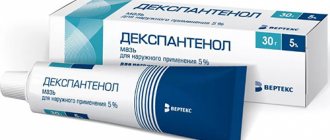Measles is an acute viral infection, which is characterized by fever, the development of catarrhal symptoms and the appearance of a specific rash. Measles is highly contagious. Transmitted from person to person by airborne droplets. The disease develops approximately 10 days after exposure.
Manifestations of the disease begin with fever, runny nose, and cough. Conjunctivitis and photophobia develop. From about 4 days of illness, a characteristic rash appears on the mucous membranes of the oral cavity and on the skin. The skin rash appears in stages starting from the head. Then moves on to the torso, arms and legs. By day 4, the rash begins to darken and peel. Then it disappears in the same sequence in which it appeared. There is no specific treatment for measles. Complications of infection occur in about a quarter of cases. These include: bronchitis, sinusitis, pneumonia and encephalitis.
Measles is a highly contagious infection; upon contact with a sick person, 9 out of 10 unvaccinated children become infected. The measles virus tends to infect the cells of the child’s immune system. This entails a high risk of infectious complications. In the pre-vaccination era, measles was one of the leading causes of child mortality. In addition, measles is often complicated by a disease of the nervous system. Measles encephalitis develops in approximately one in 300 affected children and has no specific treatment. Due to the high “infectiousness”, outbreaks of measles still occur in the world, especially in communities with low vaccination coverage.
Rubella is a viral infection characterized by mild catarrhal symptoms and the appearance of a rash. Rubella has a long incubation period. It takes 2-4 weeks from infection to the development of the disease. In this case, a person becomes infectious already in the middle of the incubation period and remains infectious after the rubella rash disappears. The first symptoms of the disease are nonspecific - a slight increase in temperature, a slight runny nose, weakness, and enlarged lymph nodes. After about 2 days of illness, a characteristic pinpoint bright rash appears. First on the head, then gradually descends to the limbs. After a few days, the rash goes away on its own without leaving a trace. Rubella in children is usually not severe. Rarely leads to complications.
Rubella has a mild course in children. However, due to the fact that the patient is contagious for a long time, even without a clinic, rubella spreads easily. Rubella infection is extremely dangerous for pregnant women, especially in the first trimester of pregnancy. In about a quarter of cases, women who have had rubella give birth to babies with one or another severe pathology. The most common of them is congenital cataracts (visual impairment, including blindness).
Mumps (mumps) is an acute infectious disease characterized by damage to the endocrine glands (usually the parotid salivary gland). The virus is transmitted by airborne droplets, less often by contact (from contaminated surfaces). The disease has a long incubation period - approximately 16-18 days. However, from the middle of the incubation period, the child can be contagious. The disease begins with a slight increase in temperature, general weakness, and dry cough. On days 2-3, the parotid salivary glands enlarge. After about a week, the size of the glands begins to decrease and the patient recovers. In some cases, recovery does not occur, complications appear - damage to the pancreas, mammary or gonads, nervous system, hearing impairment. It is important to note that mumps has no specific treatment.
Online consultation with pediatrician Olga Nikolaevna Tekutyeva
Registration online
During the consultation, you will be able to voice your problem, the doctor will clarify the situation, interpret the tests, answer your questions and give the necessary recommendations.
Mumps is often not severe and rarely causes complications. But these complications persist for life. These include infertility, deafness or the development of diabetes. In addition, those who have had mumps do not always develop immunity. The disease may recur in adulthood. The risk of complications in adults increases significantly.
What vaccinations are there for measles, rubella and mumps?
All measles, rubella, and mumps vaccines are live attenuated vaccines. This means that the drug contains live viruses grown under artificial conditions and “weakened” in a special way. So that they cannot cause a full-fledged disease, but at the same time they form stable lifelong immunity. Attempts to create inactivated (non-live) vaccines against these infections have been unsuccessful. Such vaccines turned out to be too “weak”, unable to induce lasting immunity.
Among the vaccines are:
— monovaccines. Separately mumps, measles and rubella;
- divaccines. The mumps-measles vaccine is widespread in our country;
- and trivaccines. This group includes the MMP and Priorix vaccines. Such vaccines are preferable because instead of two or three injections, the child receives only one injection.
Many experts consider prevention to be the best way to treat any disease. Sometimes it is precisely this wall that protects children from many infections. Vaccination against measles is the only way to guarantee a person’s protection against this dangerous disease. Thanks to immunization, the morbidity rate in children and adults was reduced to 85%.
Measles, all about the disease
Measles has become a fairly rare disease in children over one year of age due to regular immunization. This infection is dangerous for humans.
Let us note the most important features of this disease:
- When infected, the child's temperature rises significantly. It can reach more than 40 degrees C.
- The disease is accompanied by symptoms similar to a cold (runny nose, dry cough, sneezing, sore throat). Specific manifestations are also observed in children, which include: hoarseness, photophobia, swelling of the eyelids, rashes on the body.
- Infection of nearby people can occur up to 4 days of illness.
- The development of the disease causes a sharp decrease in immunity in children. A number of bacterial complications can occur during infection.
- After the mother suffers the disease, the child’s body will acquire immunity to the virus within 3 months, no more.
- Measles is difficult for young children (under 5 years of age). One of the dangerous complications is death.
In 2011, the disease killed more than 100,000 children worldwide who were not vaccinated against measles.
The spread of the virus occurs through airborne droplets.
A person with measles is contagious even during the incubation period. The causative agent of the infection in question is unstable in the external environment; it dies after exposure to physical and mechanical factors.
The importance of measles vaccination, vaccination schedule
Experts consider vaccination to be the only effective method of preventing infectious diseases. It does not need to be done if a person has contraindications.
The first measles vaccine should be given between 12 and 15 months of age. Vaccination should be done at an early age because adults are more susceptible to vaccination than children.
The measles vaccine is sometimes combined with many other vaccines. Vaccinations against measles, mumps, and rubella are often given at the same time.
According to the plan, 2 measles vaccinations should be given. We indicated the timing of the first vaccination above, and the second should be performed at the age of 6 years (provided there are no contraindications). Typically, the time for revaccination occurs during the Mantoux test. Experts recommend conducting a test before measles vaccination, or after some time has passed (after 1.5 months). At the same time, these vaccinations are given only if there are emergency indications in a child over one year old.
The routine vaccine is administered to children twice (12–15 months, 6 years). In rare cases, you need to deviate from this vaccination schedule:
- If one of the family members is infected, everyone under the age of 40 must be vaccinated. The exception is children under one year old.
- When a child is born from a mother in whose blood no antibodies to the virus are detected, the baby is vaccinated in the first 8 months of life. Then the child is vaccinated according to plan (14 – 15 months, 6 years).
Parents, and even children themselves, are interested in the question: where do they get vaccinated against measles? 0.5 ml. The drug is administered to a child or an adult in the following areas:
- under the shoulder blade;
- outer shoulder area.
Preparing for the injection
No special preparation is required for vaccination:
— The measles vaccination can only be given to healthy children (adults). There should be no signs of ARVI.
— Before administering the drug, it is recommended to undergo a full examination by a doctor and take tests.
There are also rules for behavior after vaccination. They are as follows:
— While taking a shower, you should not rub the area where the drug was injected.
- Avoid visiting crowded places for three days.
— New products should not be introduced into the child’s menu.
Measles vaccine for adults
If an adult decides to get vaccinated, he is recommended to undergo tests to detect antibodies to the infection. A person can have a latent form of measles without even knowing it. In this case, experts say that vaccination is not necessary.
Once the height of the epidemic has been confirmed, vaccinations cannot be done. If a person does not have a first vaccination, he should be vaccinated before traveling to a dangerous region (no later than 2 weeks before departure). The most cases of infection with the virus have been recorded in France, Germany, Great Britain, Romania, Italy, Denmark, Uzbekistan, and Spain.
The measles vaccine is given only for a certain period. Repeated administration of the drug is necessary after 3–5 years. The time for repeated vaccination in adults depends on the characteristics of the body and the vaccination schedule in the country.
Adults are vaccinated against measles up to 35 years of age, twice with a 3-month break between vaccinations. Revaccination is not needed. The body will remain immune to infection for more than 12 years. For adults, the drug is injected into the shoulder (upper third).
This infectious disease is dangerous due to complications.
Among the most severe complications we list:
- encephalitis;
- pneumonia;
- otitis;
- meningoencephalitis;
- pyelonephritis;
- sinusitis;
- hepatitis;
- meningitis;
- Eustachitis.
What vaccines are used?
The measles vaccine contains live or weakened viruses. In this state, they are unable to cause illness in the child, but only help to develop the body’s immunity to infection.
Features of the measles vaccine:
- Thermal lability. The vaccine loses its properties when exposed to conditions with an uncomfortable temperature. Its storage should be carried out at temperatures up to 40C, not higher. High/low temperatures provoke rapid destruction of the drug.
- If any unused vaccine remains, it should be destroyed.
- The drug should be administered with caution to people allergic to the antibiotic or egg white.
For preventive purposes, single vaccines and combination vaccines can be used (they also protect against rubella and mumps).
Vaccines used:
- "Ruwax." Made in France.
- LCV (monovaccine).
- Mumps-measles vaccine (Russia).
- Priorix (UK).
- MMR (combined measles, rubella, mumps). Made in USA.
How to choose a measles vaccine?
The issue is quite complex; to solve it, consultation with a specialist is necessary. The doctor will be able to choose the best option by assessing the tolerability of a particular drug.
Even after vaccination, a child can get measles. The disease can develop when a child’s immunity has sharply decreased after a single vaccination. But if a child over one year of age becomes infected, the infection will be much easier to bear. Vaccination in this case helps to stop the development of the disease, prevent its severe course, and reduce the risk of complications. Reaction to vaccination
Immunoprophylaxis is carried out using a weak live vaccine. It is very important to know whether and what consequences can occur after measles vaccination.
The measles vaccine can provoke 2 types of reactions:
- general (redness of the pharynx, mild cough, flushing, runny nose, conjunctivitis);
- local (redness in the area of vaccine administration, swelling). These manifestations disappear after a few days.
In some cases, the temperature may rise (after 6 days). The child may experience nosebleeds, decreased appetite, a measles-like rash, and malaise.
The reaction to the measles vaccine varies depending on the severity of the symptoms:
Weak. The temperature increase is only 10C. The symptoms of intoxication that we discussed above are not observed. Average. The temperature rises within 37.6 - 38.50C. There are mild symptoms of intoxication. Strong. The child has a very high temperature, weakness (for a short time), rash, cough, redness of the throat.
The above symptoms may occur when a single vaccine is administered (immunity against measles only). If combined vaccinations are carried out (rubella, mumps), additional symptoms may appear (inflammation of the salivary glands, joint pain).
Possible complications
Parents are concerned about how the measles vaccine is tolerated. Can post-vaccination complications occur? In medical practice, cases of severe complications have been recorded (very few). Usually the cause of complications lies in:
- violation of vaccination technique;
- failure to comply with contraindications;
- individual intolerance to the components of the drug;
- poor quality vaccine.
The following side effects may occur after vaccination:
- convulsive reaction. Convulsions occur at elevated temperatures. According to experts, this complication is not severe;
- toxic reaction. It appears only 6–11 days after vaccination. Characteristic: intoxication, high fever, measles-like rash, sore throat. These signs are observed for 5 days, no more;
- post-vaccination encephalitis. Nausea, agitation, headache, confusion, and convulsions may occur;
- rash. It may indicate the development of an allergic reaction. And joint pain and Quincke's edema may also occur;
- bacterial complications;
- exacerbation of allergic diseases.
Contraindications to vaccination for children and adults
Vaccination against measles will help avoid the dangerous consequences of the disease. But there are contraindications. In some cases, a child (adult) cannot be vaccinated against measles either at 12 months or again at the age of 6 years:
- pregnancy;
- primary immunodeficiency;
- the presence of severe complications from a previous vaccination;
- presence of allergies to aminoglycosides, chicken protein;
- neoplasm (malignant);
- vaccination is postponed for 3 months in case of administration of immunoglobulin and blood products;
- acquired immunodeficiency (AIDS). Vaccination is contraindicated in the development of its severe form. If there are no clinical manifestations of HIV infection, the administration of a live vaccine is allowed.
Documentation Features
All vaccinations are carried out only with the consent of the parents. Vaccinations performed must be documented. Measles vaccination also falls under this rule.
How does the vaccination process take place?
Initially, the pediatrician examines the child. Before the drug is administered, parents are given a form to sign indicating that they consent to this medical procedure.
If parents are against vaccination, they are required to issue a written refusal to the procedure. The signature of one of them is enough. The refusal must be drawn up in two copies. The doctor pastes the first copy into the child’s card, copy No. 2 should be attached to the local journal “On immunization of the population.” Parents file an annual waiver of vaccination.
Preventing measles
Measles vaccination is considered the only preventive measure.
The weakened virus is not dangerous to health; it will help the body develop immunity to the disease.
Sometimes emergency prevention is needed. It consists of vaccination within 2–3 days after a child (over 6 months of age) comes into contact with a sick person.
For young children under one year old (aged 3–6 months), emergency prevention involves the administration of human immunoglobulin. It contains protective antibodies from the serum of donors and people who have had measles. After 2–3 months, active immunization can be done.
Source: https://pro-privivku.ru/
Read also:
- WHO. Measles: Know the risks, check your status, protect yourself
- Vaccination against measles, rubella, chickenpox
- What is measles?
- 8 Key Facts About Measles That All Responsible Parents Should Know
- Causes of measles outbreak 2021: why is the virus difficult to stop?
- What you need to know about measles
- VIDEO about measles
- Attention parents: Preventing measles
When is the measles, rubella and mumps vaccine given?
According to the national vaccination calendar, the vaccine (or 2 vaccines, separately rubella and mumps-measles) is administered at 12 months. This age was chosen because until about 11 months the child can retain immunity transmitted in utero from the mother.
The second vaccination is given at 6 years of age. Repeated administration is recommended because the first vaccination provides approximately 70–80% protection against infection. Repeated vaccination increases the level of protection to approximately 95%.
Separately, the calendar provides for vaccinations for girls from 18 to 25 years old. To prevent the development of congenital rubella in children.
Vaccine options
Measles vaccine is often combined with rubella and/or mumps vaccines in countries where these diseases are a problem.
It is equally effective both as a single vaccine and as a combination drug. Combining vaccines against measles and rubella only slightly increases its final cost and makes it possible to combine the costs of vaccine delivery and vaccination. In Russia, the live measles cultural vaccine, the mumps-measles cultural live vaccine (Divaccina), the trivalent vaccine "Priorix" (live), the trivalent vaccine "M-M-R II MMR-II (live)" are used. Measles vaccine is weakly reactogenic. A vaccinated person is not contagious to others. After double immunization, the protective antibody titer is determined in 95-98% of vaccinated people, immunity lasts up to 25 years. The main difference between imported vaccines and domestic ones is the presence of trace concentrations of chicken egg protein, since it is in chicken embryo cell culture that the measles virus is cultivated to make the vaccine. The Russian measles vaccine is prepared by cultivating an attenuated strain of measles virus on a primary cell culture of quail embryos. The domestic vaccine meets WHO requirements and is superior to the Belgian and American ones in terms of a lower percentage of vaccine reactions, absence of rash and temperature rise above 38.50 C.
Rubella vaccination and pregnancy.
It has been proven that antibodies after rubella vaccination last for approximately 10 - 20 years.
- If a woman planning a pregnancy is sure that she was vaccinated no more than 10 years ago, and has received at least 2 vaccinations throughout her life, she can safely plan a pregnancy.
- The second option is if the woman has not been vaccinated, the vaccination schedule has not been completed, or she does not know which vaccinations were given and when. Before planning a pregnancy, it is better to get vaccinated against rubella.
- If a woman has been vaccinated twice, but more than 10 years have passed since vaccination. In this case, before planning a pregnancy, you can take a blood test for antibodies. If the antibody level is sufficient, you can plan a pregnancy. If the level of antibodies decreases or is absent, the woman is recommended to get vaccinated.
How is the vaccination done?
Single vaccines (measles only) or complex vaccines (Priorix, MMP II for measles, mumps and rubella) are used. The latter are especially convenient for childhood immunization, so as not to have to do multiple injections. The algorithm for measles vaccination of children includes 2 stages: 1-1.5 years and 6 years.
Injections are made in the place with the greatest muscle volume for deep injection. For young children, the vaccine is given in the thigh; sometimes the gluteal muscle is recommended for injection in children.
For adult children and others, the vaccine is given in the shoulder. The gluteal muscle is not suitable due to the large subcutaneous layer of fat in this place.
After vaccination, it is not recommended to eat allergenic foods and wash the injection site.
What complications can occur after vaccination against measles, mumps and whooping cough?
All adverse reactions can be divided into 2 large groups: nonspecific and specific.
Nonspecific reactions usually occur no later than the third day after vaccination. These include:
-increase in temperature to insignificant figures. This symptom is uncommon and can be controlled by taking an antipyretic;
- at high temperatures, febrile convulsions may occur in children with a predisposition. This is a benign condition that usually goes away with age and does not require specific treatment. However, a child with an attack of such seizures must be observed by a doctor. The vaccination schedule for children who have such a reaction to vaccination should be compiled individually;
- general disturbance of well-being - weakness, drowsiness or, conversely, anxiety and sleep disturbance. This goes away on its own and does not require correction;
-swelling and redness at the injection site. With such vaccines, this symptom is rare, goes away on its own and does not require treatment;
- acute allergic reactions. A very rare side effect for this type of vaccine. Occurs in approximately 1 case out of 3.5 million vaccinations. It develops in the first hour after receiving the vaccine and requires qualified medical care. In order to have time to help a baby who has developed an acute allergic reaction, the mother must spend the first 30-40 minutes. After vaccination, they are asked to stay in close proximity to the medical facility.
Specific reactions occur because the vaccine contains a live, weakened virus. Such reactions do not occur immediately, but 2-3 weeks after vaccination. These include:
- general malaise, symptoms of mild ARVI;
- a slight rash on the body that goes away on its own after a few days;
- mild swelling and tenderness of the parotid salivary glands;
- temporary decrease in blood platelet levels.
All these symptoms do not require treatment.
Risk of post-vaccination complications
In extremely rare cases, neurological disorders develop. Complications in the form of encephalopathy - less than 1 case per 300 thousand vaccinated people, convulsions - <0.0001%. Encephalitis has been reported at an incidence of less than 1 case per 10 million doses, which is significantly lower than that observed in natural diseases (measles: 1:1000 -1:2000; rubella: 1:6000 cases).
Thrombocytopenia – 1 case per 40,000 vaccinated people. This is why, as a rule, monitoring of blood tests (platelet levels) in children is required before immunization against measles.
When should you not get the measles, rubella and mumps vaccine?
- If the child has had severe allergic reactions to an aminoglycoside antibiotic in the past.
- Severe immunodeficiency conditions (HIV infection, cancer, blood diseases). However, during the period of remission and under the supervision of the attending physician, such children can be vaccinated.
- The period of pregnancy and breastfeeding.
- Severe reaction to the previous administration of the drug (temperature above 40*C, severe redness and swelling).
- Vaccination is temporarily postponed if the child has an acute infection or an exacerbation of a chronic disease.
Benefits of vaccination in any pediatric healthcare setting
RESPONSIBILITY FOR THE LIFE AND HEALTH OF THE PATIENT
- vaccination is carried out only in specially equipped and licensed pediatric medical centers
- All drugs used are approved for use on the territory of the Russian Federation and have the necessary certificates.
- the quality of drugs, expiration dates and storage conditions are carefully controlled
- medical personnel performing vaccinations are certified as “vaccination nurses” and undergo regular additional training and certification
- Before vaccination with any vaccines, all patients are required to be examined by an immunoprophylaxis doctor. The purpose of the examination is to make sure that the patient’s body condition is normal, there are no contraindications or medical exemptions from vaccination, and there is no risk of developing post-vaccination complications.
- After vaccination, the patient must remain in the medical center for at least 30 minutes under the supervision of a vaccination nurse
- the next day after vaccination, the vaccination nurse will definitely call you, check your health status, and make sure that the vaccination was successful.
- in case of need or development of post-vaccination complications, a pediatrician, an immunoprophylaxis specialist, will come to your home free of charge within 24 hours after vaccination and provide the necessary assistance.
Call a doctor at home Make an appointment with a doctor Or by phone +7
Measles vaccine and autism
In 1998, a British scientist published an article in a scientific journal that the preservative merthiolate contained in the measles vaccine causes inflammatory bowel disease and autism in children. A little later, other researchers refuted the article and established that the facts in it were manipulated. And the author himself admitted that he published his research for commercial purposes. He wanted to support sales of the vaccine without merthiolate. The article was refuted, the scientist was deprived of all regalia and the title of doctor.
The publication managed to generate so many rumors that even now at receptions I often hear speculation about a connection between vaccinations and autism. Since then, a large amount of research has been carried out. The last, long-term one, involving 400 thousand vaccinated children, ended in 2020.
None of the studies have confirmed the link between vaccination and autism. Unfortunately, the causes of this disease have not yet been established.
The danger of measles for adults
In adulthood, measles is very severe. The disease sharply reduces the patient's immunity, causing complications in the form of pneumonia, hepatitis, sinusitis, otitis, bronchitis, pyelonephritis, meningitis and meningoencephalitis, keratitis, eustachitis.
All complications can lead to unpredictable consequences, but the most dangerous are meningoencephalitis, which affects the nervous system, and encephalitis, which is fatal in a quarter of all cases of its occurrence.
Vaccination is the only way to protect yourself from measles and not become infected with it in childhood and adulthood.
Contraindications
The vaccination has contraindications, in which case it will have to be completely abandoned or postponed for some time. These include:
- malignant blood diseases;
- HIV;
- presence of neoplasms;
- pregnancy;
- active tuberculosis;
- acute allergy to chicken eggs and aminoglycosides.
The possibility of vaccination in case of contraindications is discussed individually with a doctor. If there is a strong reaction when the vaccine is first administered, you should understand the reason before injecting again. You will have to postpone routine vaccination if you have a viral infection or ARVI.
General rules for parents
On the eve of any proposed vaccination, the child must be protected from third-party contacts in order to avoid contracting any infections. In addition, it is not recommended to overcool the child, expose the child to sunlight, or overheat or acclimatize before vaccinations. The immune system reacts very sharply to any stress, which is all of the above impacts, and vaccination is also a stress factor for the immune system. When stress reactions are combined, antibody formation may malfunction and the development of the desired immunity may be disrupted.
Measles vaccination rules
The vaccination scheme assumes that the first vaccination is given to a child aged one to one and a half years, but in countries with an increased threshold for morbidity, children can begin to be vaccinated from 6 months.
The second dose of the vaccine is administered to consolidate the result of the first, to develop additional immunity in case of insufficient formation and in the case when the first vaccination was missed for some reason.
The timing of measles vaccinations coincides with the same timing for rubella and mumps. That is why sometimes these vaccinations are carried out in a comprehensive manner, protecting children with one drug from three severe infections at once.
Possible reactions to vaccination
In its normal course, the measles vaccine causes in adults:
- slight redness at the injection site;
- temperature up to 37.5 degrees;
- catarrhal phenomena;
- joint pain.
But it is possible to develop very dangerous side reactions - allergic shock, urticaria, Quincke's edema. Also, in particularly rare and severe cases, adults may develop encephalitis, pneumonia, meningitis, and myocarditis. To avoid such consequences, vaccination should be carried out while being completely healthy, and on the eve of the event, you need to consult an immunologist and use antihistamines.









